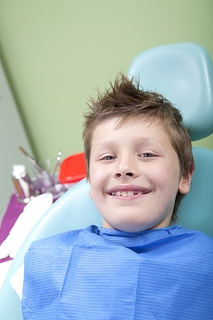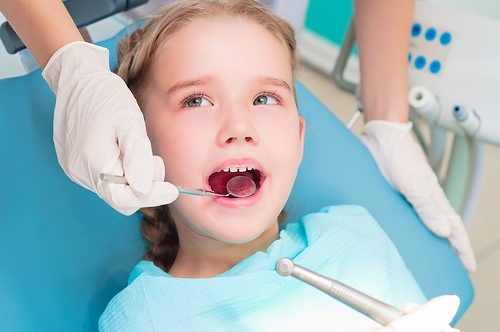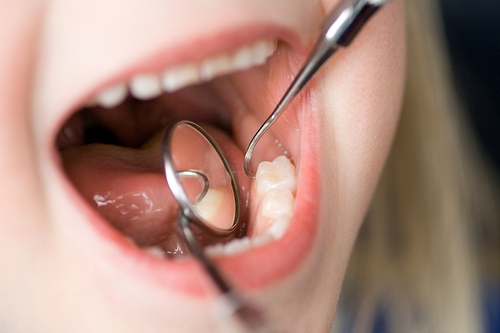Give Yourself the Gift of Beautiful, White Teeth this Holiday Season
December 9th, 2013
The holiday season sparkles with parties, family gatherings, and special events. It’s a time when cameras flash frequently to capture every magic moment. This holiday season, as the camera clicks in your direction, you can feel confident flashing your most dazzling smile because you whitened your teeth at Dr. John Rottschalk Dental Group!
Teeth whitening can help boost your self-confidence, allowing you to smile as brightly as a star atop the Christmas tree. Plus, with many options available for use in our office and at home, your teeth whitening treatment can be fully customized to meet all your smile needs.
The holidays are almost here, so be sure to schedule an appointment at our Fairview Heights, IL office! Dr. Rottschalk, Dr. Acker, and Dr. Froidcoeur, along with our team, can help you decide which type of teeth whitening product will give you a bright, white smile to last long into 2014!
Sealants Protect your Child’s Teeth from Decay
November 7th, 2013

Sealants provide a thin coating over molars that can be a powerful tool to protect your child’s teeth from decay. This simple and painless solution can be applied in a matter of minutes by our team at Dr. John Rottschalk Dental Group, forming a protective shield and avoiding costly and painful cavities or other forms of tooth decay later.
The Causes of Tooth Decay
Our mouths are routinely filled with germs and bacteria. Some of these bacteria can be helpful in converting the foods we eat (especially sugars in the food) into acids that our bodies use to break down food. However, when we eat too much sugar, the excess acids can cause cavities and other decay in teeth.
Molars (our chewing teeth) are prime sites for tooth decay because they have rough surfaces with lots of little grooves where small food particles and germs find places to stay for extended periods of time. If you can prevent tooth decay in your child’s teeth now, you may be able to avoid treatments for decaying teeth later in life—costly and painful procedures like crowns and fillings.
Protecting Against Decay
A comprehensive plan for mouth care can protect against tooth decay. This plan should include:
- Drinking water with fluoride in it or using other fluoride supplements
- Eating a healthy diet (avoiding excessive sugar)
- Brushing teeth regularly
- Applying sealants
On their own, each of these activities is good but does not provide enough protection against decay. Fluoride is best for protecting the smooth surfaces of our front teeth, but may not provide enough of a shield for our rough, uneven back teeth. In addition, toothbrush bristles may not get to all the tiny food particles and germs in our mouths. For these reasons, sealants are the recommended preventive measure for molars in the fight against germs.
Who Needs Sealants, and When?
The best time to get a sealant is when your child’s adult teeth are just growing in. Between the ages of about five and seven, children grow their first permanent molar teeth, and they grow a second set of permanent molars between the ages of 11 and 14. Sealants placed on these teeth as soon as they grow in will be most effective in preventing tooth decay before it occurs.
If your child still has his or her baby teeth, Dr. Rottschalk may recommend sealants for teeth that are especially rough or uneven and may be prone to tooth decay. When your child loses his or her baby teeth, we will apply new sealants to the permanent teeth when they grow in. In addition, our team may recommend sealants for adults in special cases; for example, if a previously placed sealant falls out, if you never had sealants put in as a child, or if your teeth are prone to decay and the preventive treatment may help.
Talk to us during your next visit at our Fairview Heights, IL office to learn more about how dental sealants can help protect your child’s teeth.
Halloween - Candy, Costumes, and More!
October 31st, 2013

All Hallows' Eve, more commonly known as Halloween, is a yearly event celebrated on October 31, and one that is anticipated by the young and young at heart all over the world. Some scholars claim that Halloween originated from Celtic festivals that honored the dead or that celebrated the harvest, while others doubt that there's any connection at all to Samhain (a Gaelic harvest festival.) Regardless of its origin, our team at the dental office of Dr. Rottschalk hope that Halloween is fun and enjoyed by all of our awesome patients!
Trick or Treat?
In North America, Halloween is predominantly celebrated by children who dress up in costumes, which range from scary to cute, who then go around the neighborhood knocking on doors asking "trick or treat", and they are given candy in return. Trick-or-treating is a time honored tradition, and though many parents groan at the pounds and pounds of candy collected by youngsters and fear for the health of their teeth, there are a few things you can do to help their teeth stay in great shape until the candy is gone:
- Limit the amount of candy they can consume each day
- Have them brush their teeth after eating candy
- Avoid hard, chewy candies as they can stick in hard to brush places
- Keep candy out of sight to reduce temptation
- Don't buy candy too far in advance to limit pre-Halloween consumption
- Help or encourage your children to floss
Halloween Fun
Halloween isn't just about gorging on candy; there are other events associated with this festive day including carving jack-o'-lanterns, painting pumpkins, decorating sugar cookies, bobbing for apples, going to haunted houses, or just curling up on the couch with a bowl full of popcorn and watching some classic, scary movies.
Halloween Around the World
Some countries, like Australia, frown upon Halloween, claiming it is an American event and not based in Australian culture, while others like Italy have embraced the fun and celebrate much as Canadians and Americans do. Mexicans have been celebrating this fun day since around 1960, and it marks the beginning of the Day of the Dead festival. Some countries in Europe have come late to the party, but since the 1990s, countries like Sweden, Norway, and Germany have started celebrating Halloween as well, and finding children in costumes or having ghosts hanging in windows has become commonplace.
Halloween is about fun; stepping outside our normal lives and donning a costume or gathering with friends to knock on doors and ask for candy is as much a part of our culture as hot dogs and barbecue on Labor Day. Have a safe and happy Halloween from the team at Dr. John Rottschalk Dental Group!
Is cheese crucial to my child's oral health?
October 24th, 2013

Cheese, as our team at Dr. John Rottschalk Dental Group will tell you, is one of the healthiest snacks for your child’s teeth. In addition to providing large amounts of much-needed calcium, cheese also helps fight cavities. Cheese helps stimulate the body’s salivary glands to clear your child's mouth of debris and protect them from acids that weaken them. This means cheese disrupts the development of cavities, especially when eaten as a snack or at the end of a meal. Calcium and phosphorous found in cheese reduce or prevent decreases in the plaque’s pH level and work to re-mineralize the enamel of your child’s teeth, according to the American Academy of Pediatric Dentistry.
We hope this helps! If you or your child have any questions about cheese or calcium, or want to schedule an appointment, please give us a call!
Maximize Your Insurance Benefits!
October 23rd, 2013
We would like to give those patients with flexible spending accounts (FSAs), health savings accounts (HSAs), or insurance benefits a friendly end-of-the-year reminder: There is still time to reserve an appointment in order to utilize your benefits before they expire. Our schedule tends to get busy toward the end of the year, so don’t wait to give us a call at 624-3838
Sincerely,
I’ve Lost a Filling – Now What?
October 17th, 2013

Dental fillings usually protect our teeth, but sometimes they need to be protected, too. If you lose a filling, contact our Dr. John Rottschalk Dental Group immediately and let us advise you on the next steps to take.
Fillings serve an important function in oral health by preserving the structural integrity of your tooth. With the materials we use today, dental fillings usually last for many years, but they are subjected to the same stresses as your natural teeth are.
You can wear down, chip, crack, or break your fillings by eating, clenching, and grinding, and sometimes they can fall out completely. While you may not notice normal wear and tear, you should not ignore any fillings that loosen or fall out. Contact us as soon as possible so we can advise you about whether you need to be seen immediately.
If your fillings get damaged or fall out, a timely response can be important. There may be gaps or holes in your tooth which provide an easy access point for bacteria. Once bacteria begin working into your tooth structure, your tooth could become damaged even worse. Since cavities usually form in hard-to-reach places, it will be difficult for you to remove these bacteria through brushing alone.
When is a Lost Filling an Emergency?
A lost or cracked filling is usually not an emergency unless you are in great pain or are bleeding excessively. In that case, contact our office immediately so we can schedule an emergency appointment. Otherwise we will schedule a regular appointment to evaluate and repair your filling. Before coming in for your appointment, try to avoid chewing on that side of your mouth, rinse with warm salt water, and be sure to brush and floss thoroughly after every meal.
Once you come to our office, Dr. Rottschalk will examine your tooth, assess the situation, and advise you of your options. We may be able to replace the filling and can discuss whether an amalgam or composite material would be the best for your teeth. If the filling was large, a root canal or a dental implant and crown may be necessary.
A lost or cracked filling may not always pose a dental emergency, but it’s always important to contact us so our team can help you take the proper action to preserve your oral health.
How Do I Handle My Child’s Dental Emergency?
October 10th, 2013

With children undergoing developmental dental changes and engaging in rough-and-tumble activities, dental emergencies can sometimes arise. If your child knocks out a tooth or experiences any type of oral discomfort, call Dr. John Rottschalk Dental Group right away so we can provide you with a quick assessment and pain-free treatment.
Before an emergency occurs, it’s a good idea to stay informed about the problems your child may encounter. Here are a few things you should keep in mind about teething pain, loose baby teeth, and other common dental issues.
Teething Pain?
Typically occurring in babies that are between four months and two and a half years old, teething may cause excessive drooling, tender gums, and some irritability. The Massachusetts Dental Society recommends providing plenty of fluids to children who are experiencing teething pain. Giving your baby a cold teething ring or gently rubbing her gums with wet gauze or your finger may also make her feel better.
Loose Baby Tooth
It is normal for a child’s first set of teeth to become loose and fall out. On the other hand, if your child’s baby tooth is knocked loose, schedule an appointment with our office so we can assess whether any damage has been done.
Issues with Permanent Teeth
Sometimes a child’s permanent teeth will grow in before the baby teeth have fallen out. Sutter Health notes that this a good reason to consult with a dental professional. Even if this condition isn’t causing any discomfort, you should schedule an appointment with our office so we can determine whether your child’s permanent teeth are growing in correctly.
Bleeding Gums
Bleeding gums can result from a number of factors, including periodontal disease, rough brushing, or an injury to the gum tissue. If your child’s gums are bleeding heavily, call our office right away so we can address the situation. If you have time before your appointment, the Cleveland Clinic recommends that you wash the child’s mouth with salted water and gently put pressure on the affected area.
Regardless of the type of dental issue your child has, you can always consult Dr. Rottschalk for further guidance. We make sure our emergency services are available 24 hours a day and seven days a week, so you have ready access to convenient and professional dental care that will have your child feeling better in no time.
October is National Dental Hygiene Month: A simple oral health routine for your busy lifestyle
October 3rd, 2013

Adults are no strangers to feeling like there is never enough time in the day to get everything done. Your alarm clock rings and within minutes you ping pong around trying to spread peanut butter on sandwiches, answer your cell phone, remove the dog hair from your clothes, and make sure your child has completed his or her science fair project. Brushing your teeth can easily fall to the wayside. That is why our office promotes a simple, daily oral health regimen that you can easily incorporate into your busy lifestyle.
The American Dental Hygienists' Association (ADHA), in partnership with the Wrigley Jr. Company, is celebrating National Dental Hygiene Month (NDHM) during October. The ADHA encourages people to "Brush. Floss. Rinse. Chew...Keep it Clean, Keep it Healthy!" and offers some great tips for a quick and effective home oral health routine, below:
Oral Health Routine at Home
- Brushing your teeth twice daily is the most important thing you can do to diminish the accumulation of plaque and the potential for other oral problems such as cavities and gingivitis.
- Flossing once daily removes plaque and food from beneath the gums and between teeth that brushing alone cannot remove. Tooth decay and gum disease often begin in these areas.
- Rinsing your mouth with an antibacterial, non-alcohol based mouthwash kills plaque and gingivitis germs that brushing and flossing do not catch. We recommend using a mouthwash with the ADA Seal of Acceptance.
- Chewing sugar-free gum helps produce saliva, which battles cavities. The gum also neutralizes plaque, strengthens enamel, and removes remaining food. It is especially important to chew gum after eating or drinking.
It's easy to put the toothbrush down in order to take care of matters you feel are more urgent, but remember, a good oral health routine at home is the best way to prevent periodontal disease. "Periodontal disease is the most common cause of tooth loss in adults. An estimated 75 percent of Americans reportedly have some form of periodontal disease," said the ADHA. Periodontal disease also is linked to more serious illnesses such as diabetes and stroke.
Also, remember to keep regular visits with our office every six months or as scheduled. Dr. Rottschalk can remove tartar and plaque, detect periodontal disease early, and help you learn more about proper care for your teeth and gums.
What is nitrous oxide and is it safe for children?
September 26th, 2013

Our team at Dr. John Rottschalk Dental Group understand that the sights, sounds and sensations at a dental office can be unsettling for some children. One effective technique that we use to comfort your child is to offer the gas nitrous oxide. Nitrous oxide is a common anesthetic used during many dental procedures.
What is Nitrous Oxide?
Nitrous oxide is an oxide of nitrogen which has a slight sweet odor and taste. During medical or dental procedures, the gas is mixed with oxygen then inhaled through a mask that covers your child's nose. Within minutes, your child should feel calm and experience an overall sense relaxation. Most children are enthusiastic about the administration of nitrous oxide and report feeling like they are dreaming. Children will be able to breathe on their own, move their limbs, and be conscious enough to hear and respond to our dentist's questions such as, "Did you remember to brush your teeth today?" Of course they did! All our patients are great brushers! The effects of nitrous oxide disappear shortly after the mask is removed and the drug is quickly eliminated from their body.
Is Nitrous Oxide Safe?
Recreational use of nitrous oxide for its euphoric effects can be dangerous, however, the drug is combined with oxygen at dental offices. This ensures oxygen reaches the brain and prevents dangerous side effects or hypoxia. The American Academy of Pediatric Dentistry (AAPD) recognizes nitrous oxide inhalation as a "safe and effective technique to reduce anxiety, produce analgesia, and enhance effective communication between a patient and healthcare provider."
Nitrous oxide is non-addictive and non-allergic, however, it may cause nausea in up to ten percent of patients. The drug is not recommended for children with some medical conditions such as chronic pulmonary disease. We recognize that all patients are different and encourage you to talk with Dr. Rottschalk about whether nitrous oxide would be a good option for your child.
Our team wants to help all patients in Fairview Heights, IL to overcome dental anxiety, so please, give us a call at Dr. John Rottschalk Dental Group.
Beat the Brushing Battle
September 19th, 2013

Dr. Rottschalk and our team know it can be a challenge to get our children to brush, brush well, and brush often. Here are some tips that can help you keep those beautiful little teeth healthy.
Make it Fun, Make it a Habit!
We should all brush twice a day. The most important time to brush is at night before bed. When we sleep, our saliva production decreases, and this creates an environment for oral bacteria to cause greater destruction to our teeth and gums. Brushing should last at least two minutes, followed by flossing and mouthwash if you choose.
Here are some ideas to make this nightly ritual more entertaining.
- Set a good example. Brush your teeth with your children and make it fun! Pick a song to play while brushing.
- Make it a race to the bathroom to see who can get their toothbrush and floss ready. But don’t make it a race to finish; make sure brushing lasts at least two minutes.
- Try using a sticker sheet. For every night your children brush well, give them a sticker. (Be sure to check their work.) After a certain number of stickers, they earn a reward. Let them pick the reward! As the child improves at brushing every night without reminders, you can wean her or him from the reward.
- SPECIAL TIP: Let your child check your brush work!
As parents, we should help our children make health and wellness something to take pride in. Be gentle with your children when they make mistakes, whether forgetting to brush or maybe developing a cavity. Tell them even our team at Dr. John Rottschalk Dental Group get cavities. Thankfully, there is always room for improvement. Happy brushing!
Teeth Grinding: Not Just a Bad Habit, But a Dental Concern
September 12th, 2013

Perhaps you don't even know you grind your teeth. Maybe a spouse or loved one woke you up in the middle of the night and made you aware of what was happening.
For many people, teeth grinding is a habit and a mechanical reflex; when they’re awakened and informed they were grinding their teeth, they have no recollection of it at all. According to the American Dental Association, this is the nightly situation for roughly ten percent of Americans. From young children to the elderly, teeth grinding, known in the dental community as bruxism, is a serious concern.
Many people who grind their teeth in their sleep have no idea they're doing it. In fact, when they wake up in the morning they feel no jaw pain and their teeth are fine: if it hadn’t been for someone telling them about it, the teeth grinding would have gone unnoticed.
There are other people, however, who wake up with jaw pain, shoulder and neck pain, and headaches. Teeth grinding can cause a host of dental complications. From cracked teeth and receding gums to a misaligned jaw, teeth grinding is not something to take lightly.
Preventive measures are the key to combating bruxism, and a visit to Dr. John Rottschalk Dental Group can set you on the path to a healthy and safe night sleep.
The Reasons for Teeth Grinding
There are many reasons for teeth grinding. For some people, it’s a habit they acquired when they were a child and never grew out of. On the other hand, some research claims that the condition is related to stress, anxiety, or some other type of psychiatric issue.
Still other studies point to everything from poor muscle control or over-eating before bed to gastro-esophageal issues. However, the root cause of the teeth grinding is less important than identifying preventive measures against it.
Common solutions to teeth grinding include:
- Wearing a protective nightguard
- Stress management techniques
- Medications and muscle relaxers
When you make an appointment with Dr. Rottschalk at our Fairview Heights, IL office, we will assess your situation and determine what the best course of action is. Teeth grinding is a dental concern that can cause serious health issues down the road, so be sure to take preventive measures today.
September is National Gum Care Month!
September 5th, 2013

Can you believe it's already September? At Dr. John Rottschalk Dental Group, we know that gingivitis, the early stage of periodontal disease, can be difficult to recognize. Many people don’t recognize the warning signs—bleeding and swollen gums, as a precursor to gum disease. This month, a national campaign is under way to raise awareness about gum health and periodontal disease, and we wanted to help do our part to spread the word!
Dr. Rottschalk will tell you early recognition and action are the most important steps to health gums, and ultimately a health body, too! Studies are published every year linking oral health, including the gums, to the health of other areas of the body, such as your heart. One of the most important steps to improving the care of your gums is recognizing the warning signs for gum disease. These can include:
- Gums that appear red or swollen
- Gums that feel tender
- Gums that bleed easily (during brushing or flossing)
- Gums that recede or pull away from the teeth
- Persistent halitosis, or bad breath
- Loose teeth
- Any change in the way teeth come together in the biting position
If you happen to notice any of these signs with you or your child, please schedule an appointment at our convenient Fairview Heights, IL office as soon as possible. Dr. Rottschalk and our team can take proactive steps to prevent gingivitis and gum disease, while showing you how to improve gum care in your or your child’s daily oral hygiene habits.
Labor Day: Our Favorite Holiday to Rest!
August 29th, 2013

Labor Day, celebrated on the first Monday each September here in the United States, is a holiday devoted to the American working community. The purpose of the holiday is honoring the country's workers and their contributions to the strength of our country as a whole.
How Labor Day Started
There is actually some debate as to the origins of Labor Day. It is uncertain whether Peter McGuire, a co founder for the American Federation of Labor, or Matthew Maguire, who was the secretary of Central Labor Union of New York, had the great idea. However, the Central Labor Union's plans were what launched the first Labor Day in America.
The First Labor Day
The very first Labor Day was celebrated on September 5th, 1882. The Central Labor Union then held annual celebrations on September 5th for what they called a working man's holiday. By the year 1885, the Labor Day celebration had spread to many different industrial areas, and after that it began spreading to all industries in the United States.
Labor Day Today
Labor Day today is a huge United States holiday during which we honor the country's workers with a day of rest and relaxation or a day of picnics and parades. This holiday is truly one to honor the many people who work hard to contribute to the economic well-being of our great country!
Our team at Dr. John Rottschalk Dental Group hope all of our patients celebrate Labor Day, and every holiday, safely and happily. Whether you stay in the Fairview Heights, IL area, or travel out of town, have fun, and don't forget to brush!
How to Brush a Two-Year-Old’s Teeth Effectively
August 22nd, 2013

Our team at Dr. John Rottschalk Dental Group would like to offer some tips regarding the sometimes dreaded task of brushing a toddler’s teeth.
Much of the trick lies in the positioning. Before you begin, make sure you are in a position of control. This protects both you and your child from injury. Consider how well you can see. If you cannot see clearly, the quality of brushing drops significantly. For instance, if your child is standing, you are likely to see only the bottom teeth well.
Our team finds that the best position for brushing and flossing a toddler is when your child is calm. Have your child lie down on his or her back with arms out to make a T. Sit down just above the head and lightly place your legs over your child’s arms. Using a circular motion, brush all sides of the teeth.
It may sound odd, but approaching the routine this way can make brushing time a cinch! After you’re done, give your child the toothbrush and let him or her have a turn. The benefit of doing the brushing and flossing first is that it gives an example, which your child is more likely to repeat when you’re done.
Different methods work best for different families and children. These practices need to be performed with kindness and care. Be gentle and make this time a happy learning time. Don’t forget to bring your child to our Fairview Heights, IL office for regular dental checkups and cleanings. Dr. Rottschalk can advise you on ways to implement portions of these tips in a way that may work bests for you and your child.
You Broke Your Tooth – Now What?
August 15th, 2013

You may have bitten down on a hard food or object, or perhaps you had a cavity that weakened your tooth. Either way, your tooth is now broken, and the steps you take to care for it will determine whether you get to keep your natural tooth or not. Millions of people suffer from broken teeth every year, so you are not alone. However, that does not mean your newly cracked tooth does not need immediate attention.
What is a Broken Tooth?
A broken tooth is one that has been fractured, chipped, cracked, broken apart, or completely knocked out of the mouth. You may or may not feel your tooth break, depending on the extent of the break and whether your tooth was decaying prior to the break. It is usually very easy to diagnose a broken tooth, because the evidence will be visible. In the case of hairline cracks in the teeth, you may start to note a sensitivity to hot or cold in the neighborhood of the fracture.
The Right Way to Handle a Broken Tooth
As soon as you know your tooth is broken, chipped, or fractured, make an appointment to visit our emergency dental office. Even the tiniest fractures require attention: bacteria can infect the fractured area, which could cause you to lose the tooth altogether.
Until you are in our office, you can manage your pain using over-the-counter pain medication, such as Tylenol, or you can apply a cold compress to prevent swelling and inflammation. Be sure to rinse your mouth with warm salt water after every meal until you are able to visit us.
Keep in mind that while pain medication is an effective way to manage a broken tooth at home, it is only a temporary fix. Broken teeth should not be treated solely at home, and over-the-counter solutions are not substitutions for professional dental care. Failing to make an appointment with Dr. Rottschalk after breaking or chipping a tooth can place your health at risk.
Treatment
Treating your broken tooth will depend on the type of break you have and how much of the tooth is affected. According to the American Dental Association, a minor chip or tiny fracture line may be repaired with bonding. On the other hand, a more serious break that exposes the tooth's pulp may require a root canal or extraction to prevent infection. Ultimately, our team here at Dr. John Rottschalk Dental Group will explain to you the best treatment plan based upon our evaluation of the condition and extent of your break.
If you have broken, cracked, chipped, or fractured one or more of your teeth, don’t hesitate to contact our office immediately. We specialize in emergency dental care and are available to serve you 24 hours a day, seven days a week.
Treatment and Diagnosis for your Child’s Teeth Grinding
August 8th, 2013

The habit of grinding teeth can be both painful and harmful for your children. If you discover that they are frequently grinding their teeth—a condition called bruxism—here is some helpful information on the problem, and how you can find help to put a halt to it.
How to Know if Your Child is Grinding
Sometimes, identifying a child that grinds teeth is as simple as checking in while he or she is asleep. At other times, you may not be able to readily identify the grinding problem. A few of the most common symptoms associated with bruxism include:
- Frequent teeth grinding or clenching of the jaw (in some cases it may be more subtle; in others it may be loud enough that you can hear it)
- Teeth that are worn down
- Complaints of sensitive teeth
- Pain or tightness in the jaw muscles, or an earache or other jaw pain
- Frequent unexplained headaches
In most cases, if your children are grinding their teeth, they will do it at night. If the teeth grinding is a result of excessive amounts of stress, it may also happen during the daytime. Some of the most common reasons children grind their teeth involve:
- Improper alignment of top and bottom teeth
- As a response to pain, especially for tooth, jaw, or gum pain
- Excessive stress, tension, or anger
Treatment Options for Bruxism
In many cases, children will grow out of the teeth grinding as their permanent teeth develop, replacing poorly aligned or painful baby teeth. If your child grinds his or her teeth more frequently, or you begin to notice significant damage, it may be more serious and need to be addressed by Dr. Rottschalk before it causes more permanent pain or problems.
In some cases, our team at Dr. John Rottschalk Dental Group may recommend that your child wears a protective mouthguard to prevent grinding, or work with a therapist or other specialist to develop awareness of the grinding. If the grinding is caused by stress or anxiety, it may be helpful for you to sit down and talk to your child each day about how she is feeling, and why, to help her work through the stress.
Teeth grinding can be a painful, problematic condition for some children. However, a combination of parental vigilance and frequent visits for regular checkups at our Fairview Heights, IL office can help. If you are concerned that your child may be grinding his or her teeth, and it could cause permanent damage before the child grows out of it, come talk to us about strategies for dealing with bruxism, and ways for you to help your child.
They're Just Baby Teeth . . .
August 1st, 2013

“But they are only baby teeth; won’t they will just fall out.” Our team at Dr. John Rottschalk Dental Group has had these questions asked many times from parents over the years. Primary teeth, or “baby teeth,” will indeed come out eventually, to be replaced by permanent teeth as the child grows and develops. These teeth serve a great purpose as the child continues to develop and require specific care.
Because baby teeth are temporary, some parents are unenthusiastic about fixing cavities in them. This may be due to the cost or having to force a child undergo the process—especially having to receive an injection. But if a cavity is diagnosed early enough, an injection can often be avoided. More important, failure to fill cavities in primary teeth when they are small and manageable can have lasting consequences in cost and health concerns. Serious illnesses in children have been diagnosed which began as a cavity.
Primary teeth act as a guide for permanent teeth. When decay reaches the nerve and blood supply of a tooth, this can cause an abscess. Severe pain and swelling may result. At that point, the only treatment options are either to remove the tooth or to perform a procedure similar to a baby root canal. When a primary tooth is lost prematurely—to decay or a painful abscess—the adjacent teeth will often shift and block the eruption of a permanent tooth. Braces or spacers become necessary to avoid crowding or impaction of the permanent tooth.
There is nothing more heartbreaking for Dr. Rottschalk than to have to treat a child experiencing pain and fear. To all the parents of my little patients our team strongly recommend filling a small cavity and not waiting until it becomes a larger problem such as those described above.
Prevention is the key to a healthy mouth for our smallest patients. Parents should allow the child to brush his or her teeth using a pea-sized amount of fluoride toothpaste and then take a turn to ensure the plaque gets removed from all surfaces: cheek side, tongue side, and chewing edges of all the teeth.
Common Emergency Visits: From Lost Fillings to Broken Dentures
July 25th, 2013

You never know when you're going to experience a dental emergency, but if you do, it should give you peace of mind that know that emergency dental care is available at our office 24/7. Whether you chip your front tooth playing softball, or your child knocks out a couple of teeth in a playground fall, receiving the emergency dental treatment you need is accessible and convenient.
If you're experiencing a dental emergency, our team at Dr. John Rottschalk Dental Group is here to help you any time of the day or night. Dental emergencies should not be taken lightly, so don't delay. Contact our office as soon as possible. Common dental emergencies include the following:
Lost Fillings and Crowns
Fillings are used to repair cavities. Crowns, on the other hand, are used to cover broken or damaged teeth. Over time, it’s possible for both of these items to loosen and fall out. A lost filling or crown can be painful, because the exposed tissue may be sensitive. Hot and cold temperatures will cause discomfort. While a lost filling or crown might not be as severe a dental emergency as a broken or chipped tooth (most people respond quicker to pain than self-consciousness about their looks), you need to get it fixed as soon as possible.
Broken Dentures
If your dentures are broken, everyday tasks may become trying and arduous. If you can’t chew, swallow, or eat properly, the situation calls for emergency care. Depending on how damaged your dentures are, Dr. Rottschalk may need to send out a mold of your mouth in order to have the manufacturer make a new pair. On the other hand, if the dentures are not damaged too badly, then we may be able to fix them in-house. If you're having problems with your dentures, you should give us a call as soon as possible.
From chipped and cracked teeth to lost fillings and broken dentures, dental emergencies come in all shapes and sizes. Emergencies are unexpected, but we want you to know that treatment is available, day or night. When your dental health is at risk, we are here to help. In the case of a dental emergency, don't wait; contact our Fairview Heights, IL office at your earliest convenience.
Pediatric Dentistry: The Benefits of Dairy
July 18th, 2013

When you were a child, your mother may have instructed you to drink all your milk to build strong bones. Now that you have children of your own, you may hear yourself parroting those instructions you received years ago. Getting enough dairy is essential for young children whose teeth are growing. A child who consumes the recommended daily serving of dairy will develop healthy, strong teeth for the rest of his or her life.
Structure of the Tooth
To fully grasp the importance of dairy for dental health, it is necessary to understand tooth structure. Your teeth are made of living tissues covered by a hard outer shell. The inner dental pulp is fed by blood vessels and connects to a nerve bed in your gums. Surrounding the pulp is dentine, a calcified tissue that is less brittle than the tooth’s outermost layer, the enamel. The enamel layer is the white part of your teeth, 96% of which consists of minerals such as calcium phosphate.
How Does Dairy Help My Child’s Teeth?
Milk and other dairy products are excellent sources of calcium. Your child’s body deposits this calcium into her growing bones, including the teeth. Calcium contributes to bone growth and strength, and it forms an important part of the solid enamel that surrounds each tooth’s fragile inner pulp. Milk also contains vitamin D, phosphorus, magnesium, and proteins. Magnesium promotes calcium deposits in your enamel, while phosphorus forms a small barrier against acidic foods that cause cavities. Vitamin D and protein are used by a child’s body to build bone tissue and maintain dental health.
How Much Dairy Does a Child Need?
According to a 2011 study conducted by researchers at the University of Connecticut, the majority of Americans do not receive enough calcium. The U.S. Department of Agriculture recommends that children under the age of eight should receive at least two and a half cups of dairy per day. Children older than eight need three full cups — the same as adult men and women. Supplying your child with nonfat milk to drink and yogurt to eat every day is a great way to increase dairy consumption.
Growing children who do not get enough dairy in their diets risk improper tooth development and other dental health problems. Drinking sugary beverages in place of milk causes cavities and tooth decay. As a parent, it is essential to monitor your child’s dairy consumption to ensure he or she grows healthy teeth to last a lifetime.
Is there a correlation between my dental and cardiovascular health?
July 11th, 2013

YES! Studies have shown a correlation between gum disease and heart disease, underscoring the importance of good oral health care. Cardiovascular disease remains American’s leading killer, claiming more lives than the rest of major causes of death, according to our friends at the American Heart Association. In fact, an estimated 80 percent of American adults currently have some form of gum disease, also known as periodontal disease.
Studies also suggest that patients, especially those with gum disease, are believed to have an elevated risk of heart attack and stroke. Since most patients are not regularly visiting a heart specialist, their regular visits to our Fairview Heights, IL office can help detect early warning signs of heart issues, prevent gum disease or at the very least catch it at its early stage. We’d also like you to know your numbers: blood pressure (less than 120/80), cholesterol (less than 200) and BMI (less than 25).
There are many benefits to visiting Dr. John Rottschalk Dental Group in addition to maintaining your dental health. If it has been more than six months since your last visit, please give us a call!
Fun Facts for the Fourth
July 4th, 2013

The Fourth of July is a great time to get together with friends and family members for BBQ, games, fireworks, and other celebrations in honor of our country’s independence. While your fellow revelers eat hot dogs and wave flags, you can impress them by sharing these fascinating facts and historical tidbits about some of our country’s traditions and symbols from the team at Dr. John Rottschalk Dental Group.
The Statue of Liberty
With a torch in one hand and a tablet in the other, the Statue of Liberty is one of the most iconic and recognizable symbols of our country. However, as recognizable as certain parts of the statue are, not many people know that broken shackles, which represent oppression and tyranny, are lying at Lady Liberty’s feet. According to the Statue of Liberty-Ellis Island Foundation, the copper-plated lady weighs in at a whopping 450,000 tons and has been holding her torch up for more than 125 years, which must make for some impressive arm muscles.
Nathan’s Hot Dog Eating Contest
Since 1916, people have been flocking to Coney Island on the Fourth of July to witness what some people call the “superbowl of competitive eating.” Nathan’s Hot Dog Eating contest challenges competitors to devour as many hot dogs as they can in just ten minutes, with the current record holder swallowing a whopping 68 hot dogs back in 2009! If you’d like to witness this bizarre and frenzied eating competition but you won’t be anywhere near Coney Island on the fourth, don’t worry. ESPN has been broadcasting this popular event for several years, so you can watch from the comfort of your couch while you eat a reasonably portioned meal.
The History Behind Fireworks
Viewing the nighttime fireworks display is exciting way to finish off the fourth. Many people know that these brilliant displays probably originated with the Chinese. However, according to History.com, many historians also believe that fireworks were stumbled upon when the Chinese roasted bamboo sticks over fires and watched them explode. After many years of roasting the sticks, a group of alchemists created an early form of gunpowder, which they stuffed into the bamboo sticks to create an even more powerful explosion, paving the way for the today’s modern fireworks.
Whether you’re planning on visiting the Statue of Liberty, watching fireworks in Fairview Heights, IL, or even participating in a hot dog eating contest, Dr. Rottschalk and our team hope you have a safe and fun-filled holiday. Happy Fourth of July!
Providing the Right Dental Care for your Children
June 27th, 2013

You already know that Dr. John Rottschalk Dental Group recommends you come in for a checkup and cleaning at least every six months, but do you know what your child’s dental needs are? From the time children are babies and growing in their first teeth, their oral health care needs may be different from adults. It’s important to know what they need, and when, to help them grow strong, healthy teeth.
When to See Our Team at Dr. John Rottschalk Dental Group
While dental care (at home) can begin as soon as your baby starts to show signs of that first tooth, most experts do not recommend you see a dentist until your child is at least one year old. The child will likely be too young at this point to have a full dental exam, but we can take a look at your baby’s teeth and give you tips for brushing and flossing properly.
By the time your child has all of his or her baby teeth—usually around 24 to 30 months of age—we can begin scheduling regular checkups and cleanings.
What to Expect on the First Visits
The first visit to our Fairview Heights, IL office for a full exam will mostly involve getting to know Dr. Rottschalk and staff members, and making your child feel comfortable. Let us know if you would like to sit in the exam room during the appointment, but keep in mind that it may be beneficial to leave your child alone with Dr. Rottschalk for a portion of the appointment so we can start building trust with your child.
Our team at Dr. John Rottschalk Dental Group will likely do some or all of the following during your child's visit:
- Look for signs of decay or other tooth or gum problems
- Examine your child’s bite, checking for misalignment that could lead to problems in the future
- Clean the teeth, and apply fluoride if your child is old enough
- Talk to you about proper oral health care for your children
- Answer any questions you may have about caring for your child’s teeth, which may include topics like fluoride needs, nutrition and diet, teething, and the frequency of future checkups
In most cases, we will recommend that you bring your child in every six months for regular checkups, the same as your recommended frequency.
Understanding your child’s unique dental needs is important for providing the best possible care when it becomes necessary. We look forward to building a good relationship with your child so coming to the dentist is a fun, rewarding experience and not a frightening one.
I have fluoride toothpaste and fluoridated water; do I need a fluoride treatment?
June 20th, 2013

Fluoride is a naturally found ion with a history of greatly reducing the incidence of tooth decay in children. However, over the past decade Americans have increasingly consumed bottled water, most of which does not contain fluoride, and children are no longer getting the recommended dosage of fluoride. In addition, many areas do not add the optimum amount of fluoride to the town drinking water.
Everyone’s dental needs are different. The amount of fluoride a person needs is determined by age (children), tooth sensitivity, risk for cavities, and medical conditions. When a patient needs additional fluoride it can be applied in a foam or varnish.
Children receive additional topical fluoride because teeth in the early development stages have a higher mineral uptake. The future strength of the enamel depends on this. When a tooth absorbs the fluoride ion, it creates hydroxyapatite, a harder mineral compound than enamel alone.
Those who have a dry mouth from medication also need extra fluoride. A daily fluoride rinse and a semi-annual fluoride varnish treatment are standard. If you are on medicine for high blood pressure, anxiety, diabetes, depression, or cholesterol, you may fit in this category.
Cancer treatments can also greatly impact your oral health. Fluoride varnish treatments prior to, during, and after radiation and chemotherapy can be beneficial. There are other mouth conditions which coincide with cancer treatments which make it difficult to brush and floss daily, and can contribute to an increased risk for decay. An infection during cancer treatment can be especially harmful, which is why preventive measures are important.
Fluoride treatments, administered topically, are highly beneficial in preventing decay. Feel free to call Dr. John Rottschalk Dental Group to schedule an appointment or if you have any questions.
Common Emergency Care Visits: Toothaches or Abscesses
June 13th, 2013

Dental problems do not always wait for normal office hours. Broken fillings or damaged teeth are common reasons for emergency treatment. Toothaches and abscesses can also require prompt attention. Dr. John Rottschalk Dental Group can provide you with the information and treatment you need to prevent the problem from becoming worse. Emergency dental care is only a phone call away, 24 hours a day, seven days a week.
Abscess
According to the American Academy of Family Physicians, an abscess is a bacterial infection. An abscess will normally cause pain and swelling around the affected tooth and gum area. Antibiotics are not always necessary, but you should seek treatment quickly. Left untreated, an infection can spread and cause serious complications.
Toothache
There are many reasons that you may develop a sudden toothache. The cause of the pain may be a particle of food lodged between your tooth and gum line. One of the first steps you can take is to rinse your mouth with warm water. You may also try gently flossing the area to dislodge the particle. Do not continue flossing if bleeding occurs.
Toothaches can occur from a carie — a cavity in the tooth — or from a fracture. Sensitivity to heat or cold may also cause tooth pain. You should make an appointment to ensure that a minor problem does not become serious. We may recommend acetaminophen or another pain reliever to reduce the pain before your visit.
Additional tips and treatments:
- If you have fractured a tooth, rinse the area with warm water to keep the surfaces clean. Apply a cold compress to the outside of your facial area to reduce swelling.
- A tooth that has been knocked out should be kept moist, in a clean container, until you can receive treatment.
- Do not apply aspirin directly on a damaged tooth or gum area as it can cause tissue irritation.
- If you suspect that your jaw has been broken, go to an emergency room immediately.
- If you have bitten or damaged your lips or tongue, rinse your mouth well with warm water. If bleeding continues, call us or seek other medical attention immediately.
Our team is ready to assist you when you have an emergency dental need. When you call, please provide us with as much information as possible so we can offer recommendations that will assist you until your appointment. Do not delay; emergency treatment is available and immediate treatment is the best course of action.
Smile! June is National Smile Month!
June 6th, 2013

Can you believe it’s already June? Today, Dr. Rottschalk and our team at Dr. John Rottschalk Dental Group thought we’d tell you June is National Smile Month, and remind all our patients to practice good oral hygiene between your visits to our office!
Below are a few simple steps you can take to improve your oral health so that you may celebrate National Smile Month for many, many years to come:
- Brush at least twice a day with fluoride toothpaste
- Floss every day to clean between your teeth
- Reduce your intake of sugary foods and drinks
- Visit Dr. Rottschalk every six months, or as recommended
If you have questions about any of these tips, we encourage you to give us a call, ask our team during your next visit, or ask us on Facebook!
Telltale Signs That Your Tooth Has A Cavity
May 30th, 2013

Dr. Rottschalk and our team at Dr. John Rottschalk Dental Group frequently get questions about cavity causes and prevention. You brush twice a day and floss regularly. You rinse with hydrogen peroxide, just like the dentist recommended. In fact, you can’t remember the last time you had a cavity, but you think it was when you were a little kid. In all seriousness, you thought only kids got cavities.
The Signs and Symptoms of a Cavity
It’s believed that roughly 90% of Americans will get at least one cavity in their lifetime. Those other ten percent, it seems, can eat as much pie, cake, and sugary cereals and sweets as they want. That’s not really true; just a stab at dental humor, and it was as bad as the pain your cavity is probably giving you.
When a cavity is in its initial stages, you will often be symptom-free and experience no discomfort at all. It’s not until the tooth decay has reached a certain level that you will begin to notice the signs and symptoms. While a toothache and sensitivity to hot and cold foods and liquids are surefire signs that you have a cavity, there are lesser-known symptoms as well. If you’re experiencing any of these warning signs, you may want to consider making an appointment with our office as soon as possible:
- Persistent bad breath or a bad taste in the mouth
- When you bite down, there is a sticky, tarry feeling
- Puss or discharge around a tooth
- A visible discoloring, usually black or brown
- Small pits or holes in the tooth
Routine dental care is important. While good oral hygiene, a healthy diet, and regular cleanings will deter the formation of cavities, they do not constitute a foolproof practice. A cavity can occur at any time, no matter what your age. Bacteria causes tooth decay, and no amount of brushing, flossing, and rinsing will eradicate all the bacteria from your mouth. If you think you may have a cavity, please contact our office immediately.
The Thumb-Sucking Habit
May 29th, 2013

At Dr. John Rottschalk Dental Group, we are often asked “should I be concerned with my child’s thumb sucking?” So, our team thought we’d share what our thoughts are on your child sucking his or her thumb.
Infants Who Suck Their Thumbs
As infants begin experimenting with the basic functions of their mouths, from sucking on a bottle to beginning to speak, it is natural for them to suck their thumbs. Parents with young babies who regularly suck their thumbs probably don’t need to feel overly concerned, so long as fingers are kept clean and the habit is kept in check. For most children, the exploratory stage of thumb-sucking ends after just a few short years. Problems with thumb-sucking occur when infants grow into young children but the habit has not been resolved.
Dangers of Thumb-Sucking
One of the main differences between an infant and a child sucking his thumb is the formation of the mouth and teeth. An infant’s mouth is barely beginning to grow and develop, so sucking a thumb might actually help to stimulate the process. For a child with a mouth full of teeth, however, a thumb-sucking habit might cause some serious problems. As a parent, it can be very important to watch your child carefully to make sure the sucking habit is regulated.
As a child grows and develops, baby teeth begin to fall out. A child sucking his or her thumb during the baby teeth stage may not run any great risks. Our team at Dr. John Rottschalk Dental Group often sees that once a child has developed his or her permanent teeth, the problems with thumb-sucking can become more serious. KidsHealth.org states that children who suck their thumbs beyond the age of four or five might increase their risk of developing an overbite, infections, and other dental problems.
What You Can Do To Help
Parents who want to prevent possible problems for their child would be wise to begin preventive care early on. While you don’t need to be overly concerned about an infant sucking a thumb, it might be a good idea to help your toddler break the habit before permanent teeth begin to show.
- Try to use positive rewards for good behavior instead of negativity or threatening behavior.
- Talk openly with your child about the potential dangers of a thumb-sucking habit.
- Help your child find other productive things to do with the hands as a means of distraction. Playing a game of blocks, for example, might be a great diversion.
- Support and encourage your child while he or she is trying to break the habit.
As children develop, they have many things to learn and to think about. By understanding a few simple facts about thumb-sucking, you can help your child develop in a healthy and positive way. If you have any other questions, feel to contact us at our Fairview Heights, IL office, or ask Dr. Rottschalk during your next appointment!
May Marks National Physical Fitness and Sports Month!
May 6th, 2013

Did you know the month of May is designated National Physical Fitness and Sports Month? After all, there isn't a better time to celebrate physical activity as when the warm weather and sunshine makes its way back into our lives!
Now that the flowers are in bloom and the weather has warmed up, it's easier to go outside and soak up the sun. After spending the winter working out in gyms or doing crunches at home, exercising outdoors can be a lot more enjoyable as well. Whether you enjoy hikes, jogging, or biking, spring gives us a chance to smell the grass, take in the rays, and enjoy the blue sky—all senses that we just can't duplicate at the gym.
If jogging or biking isn't your cup of tea, we encourage you to try a sport! Sports have some amazing qualities that we often overlook. Team sports like baseball and soccer, and individual sports like golf and tennis can improve your coordination and agility, in addition to building determination, confidence, drive, hard-work, pride, leadership, and time management.
We always encourage our patients to stay fit by exercising or participating in sports. However, we want to remind you to always wear a mouthguard or other form of facial protection when playing sports. To learn more about how often your child should exercise, or to ask us about obtaining a mouthguard, please give us a call!
Win a Free Apple iPad Mini!!
December 27th, 2012
 That's right! You could win one! Every current patient that refers a new patient who registers in our office during the month of January will have their name put in a drawing for a chance to win an iPad Mini. The one winner will be notified on Friday, Feb. 1st, and the winner's name will be announced on our home page.
That's right! You could win one! Every current patient that refers a new patient who registers in our office during the month of January will have their name put in a drawing for a chance to win an iPad Mini. The one winner will be notified on Friday, Feb. 1st, and the winner's name will be announced on our home page.
Whether or not you enter the drawing, make 2013 YOUR year. Start it off right by reserving your time with our team in order to look and feel your best. We appreciate your referrals!
Don't throw your insurance benefits away!
October 22nd, 2012
 A friendly end of the year reminder to our patients with flex spending, health savings or insurance benefits: It's the perfect time to schedule your visit with Dr. Rottschalk & team, so you may optimize your benefits. Space is limited and we tend to get busy around the holiday season, so don't wait to give us a call.
A friendly end of the year reminder to our patients with flex spending, health savings or insurance benefits: It's the perfect time to schedule your visit with Dr. Rottschalk & team, so you may optimize your benefits. Space is limited and we tend to get busy around the holiday season, so don't wait to give us a call.
Please note, if you have used all of your annual benefits or do not have dental insurance at this time, we will create a plan to help you meet your dental needs.
Hope to see you soon!
Dental fun facts!
October 5th, 2012
 Dental fun facts from our office!
Dental fun facts from our office!
Everyone loves fun facts and dental tips. Fun, fun, fun! Drs. Rottschalk, Acker, Froidcoeur and our team came across these dental fun facts recently and thought you might enjoy!
• The second most common disease in the United States is cavities. The first is the common cold.
• There are almost 9,000 accidental pockings and piercings with toothpicks per year.
• X-rays may be an effective tool in preventing strokes.
• A child will have 20 baby teeth by the time he or she is 2 years old. Through childhood, kids gradually lose baby teeth and grow 32 permanent teeth, including wisdom teeth.
• According to consumer reports, dentists are among the 5 most trusted professionals in the United States.
• Approximately $2 billion a year is spent on dental products like toothpastes, mouthwashes and dental floss.
• The average American spends about 38 days brushing teeth over his or her lifetime.
• Kids in North America spend half a billion dollars per year on chewing gum.
• Approximately 94 percent of Americans say they brush nightly while only 81 percent say they brush first thing in the morning.
• Grand Rapids, MI was the first American city to fluoridate its water.
• Earliest record of a toothbrush was found in Chinese literature about 1600 AD
• The natural bristles of early toothbrushes were taken from the necks and shoulders of swine, especially pigs living in colder climates like Siberia and China.
Smile! June is National Smile Month!
June 4th, 2012
 Can you believe it’s already June? Today, our team thought we’d tell you June is National Smile Month, and a good time to remind all our patients to practice good oral hygiene between your visits to our office!
Can you believe it’s already June? Today, our team thought we’d tell you June is National Smile Month, and a good time to remind all our patients to practice good oral hygiene between your visits to our office!
Below are a few simple steps you can take to improve your oral health so that you may celebrate National Smile Month for many, many years to come:
* Brush at least twice a day with fluoride toothpaste.
* Floss everyday to clean between your teeth.
* Reduce your intake of sugary foods and drinks
* Visit us regularly!
If you have questions about any of these tips, we encourage you to give us a call, ask our team during your next visit or ask us on Facebook!
Summer is Almost Here- Tips for a Bright, White Smile!
June 1st, 2012
 Summer is only weeks away, which means a season full of vacations, adventures and great memories is just around the corner for most of our patients. Whether you are headed to a barbecue, a camping trip, hitting America’s open roads or just having fun in the backyard this summer, we want to hear all about it! Make sure to let us know what you’re up to as spring winds down and summer begins on our Facebook page!
Summer is only weeks away, which means a season full of vacations, adventures and great memories is just around the corner for most of our patients. Whether you are headed to a barbecue, a camping trip, hitting America’s open roads or just having fun in the backyard this summer, we want to hear all about it! Make sure to let us know what you’re up to as spring winds down and summer begins on our Facebook page!
Everyone wants a glowing and radiant white smile when the sun comes around and we have a few reminders to keep your pearly whites healthy and beautiful over the summer! Try to stay away from drinks that will stain your teeth like coffee, soft drinks or dark colored juices- Not only will drinks like this weaken your enamel but they will also darken that fabulous smile your working on! Another tip is to try and focus on brushing your teeth- everyone knows when busy schedules start picking up, getting a good brushing session in tends to take the backseat! A good tip for keeping your mouth safe from staining and other possible pitfalls is to try and swirl your mouth with water after any meal you can’t fully brush your teeth after- your teeth, inside and out, will benefit!
We also encourage you to post any photos from your adventures!
Patient question: “What should I expect during my first visit?”
May 7th, 2012
Thanks for the question. Your first visit typically includes an x-ray that allows us to view the structure of the jaw, the position of any teeth that have not yet erupted, malformed roots, and tooth decay.
The initial visit also involves getting your medical history. When you share your medical history with us, be sure to provide complete, up-to-date information on your health. Please let us know if you have experienced recent hospitalization or surgery, or if you have recently been ill. Also tell us the names, doses, and frequency of any medications you are taking — whether prescription or over-the-counter products — and the name of your physician. Please also let us know about any changes in your health or medications. This information will us select the most safe and effective method of treatment path for you.
Have any more questions about your first visit? Please give us a call!
May is National Teen Self-Esteem Month!
May 1st, 2012
 At Dr. John Rottschalk Dental Group, we know image is everything. May happens to be National Teen Self-Esteem Month, and during this time, parents are encouraged to act as positive role models, help stop negative self-images, and improve confidence and security among teenagers.
At Dr. John Rottschalk Dental Group, we know image is everything. May happens to be National Teen Self-Esteem Month, and during this time, parents are encouraged to act as positive role models, help stop negative self-images, and improve confidence and security among teenagers.
We know one of the great ways to improve your confidence is to improve your smile. And that begins with a visit to our office. Has your child visited Drs. John Rottschalk, Philip Acker, or Angela Froidcoeur in the past six months for his or her regular check-up? We invite you to give us a call to book your appointment!
See you soon!
April is Oral Cancer Awareness Month
April 2nd, 2012
Visiting our office regularly will not only help keep your teeth and mouth healthy, but will also help keep the rest of your body healthy. The fact is, every hour of every day in the U.S., someone dies of oral cancer, which is the sixth-most common diagnosed form of the disease. The five-year survival rate is only 50 percent, and oral cancer is one of the few cancers whose survival rate has not improved. Since April is Oral Cancer Awareness Month, we would like to take this opportunity to remind all of our patients about the importance of maintaining good oral hygiene.
We are trained to diagnose, treat, and prevent oral health problems. Please let us now if you have any questions about your oral health during your next appointment. Take care of your teeth!
The Scoop on Dental X-rays
March 26th, 2012
 Dental X-rays are an essential and invaluable tool to help assist us in evaluating your oral health. With X-rays, we can see what’s happening beneath the surface of your teeth and gums and identify oral health issues otherwise hidden during a visual exam, including:
Dental X-rays are an essential and invaluable tool to help assist us in evaluating your oral health. With X-rays, we can see what’s happening beneath the surface of your teeth and gums and identify oral health issues otherwise hidden during a visual exam, including:
- · small areas of decay between the teeth or below existing restorations (fillings)
- · infections in the bone
- · periodontal (gum) disease
- · abscesses or cysts
- · developmental abnormalities
- · types of tumors
If left untreated, these problems can lead to expensive, time-consuming, and painful conditions, so it’s important to find and treat them early.
Dental X-rays are extremely safe, and our team is certified in the proper use of our digital X-ray equipment. The amount of radiation that you are exposed to from dental X-rays is very small compared to your daily exposure from things like atmospheric radiation and naturally-occurring radioactive elements, as well as medical X-rays you may have gotten at your doctor’s office or hospital. In fact our digital system dramatically decreases the already minimal amount of exposure even further. We try to be as conservative as possible when prescribing x-rays but do need them to see what is going on where our eyes can't see.
When Was Your Last Dental Cleaning?
March 19th, 2012
You water the garden three times a week, you change your car's oil every three months, and you replace the batteries in your smoke detectors once a year. Your teeth need to see your dentist on a regular schedule, too.
While daily oral hygiene habits are essential to good oral health, professional dental cleanings at our office ensure your teeth are treated to a deeper level of cleaning. We recommend for most of our patients to have a checkup at least every six months. In addition to a thorough cleaning and polishing of your teeth, these regular visits help us detect and prevent the onset of tooth decay and periodontal (gum) disease. During your visit, we’ll check the health of your mouth, teeth, gums, cheeks, and tongue. We’ll also check old fillings and restorations, as these can wear away over time from constant chewing, grinding, or clenching.
If you are predisposed to oral diseases, you may need to visit our office more often than every six months. Factors at play in these diseases include age, pregnancy, tobacco use, medical conditions (such as diabetes, dry mouth, or HIV infection), along with how well you take care of your teeth on a daily basis.
Make sure your teeth get the professional attention they deserve – If you’re overdue for your next cleaning, check with our office to schedule an appointment!
Connect with us on Facebook!
March 12th, 2012
We will be rolling out our new Facebook Timeline page soon and would love for you to check it out! You’ll find all the useful information that was there before, but now in a fun, new layout. When you Like us on Facebook, you’ll be able to check out photos of our office, find out about new events and contests, or you can even leave a note about how much you enjoyed your visit at our office. We love hearing your feedback to make our practice serve you and your family even better. To make life even easier, if you “Like” us on Facebook, you’ll automatically receive updates from our office right on your own news feed!
See you on Facebook!
Are dental implants right for you?
March 7th, 2012
If you have missing teeth, it is crucial to replace them. Without all your teeth, chewing and eating can destabilize your bite and cause you discomfort. Dental implants are a great option for replacing missing or badly diseased teeth. A dental implant offers comfort, support, stability, and is as close to a natural tooth that a restoration can be.
There are many benefits to dental implants:
- Dental implants restore your ability to chew food properly.
- They fill out a face that may otherwise look sunken in because of missing teeth.
- They don’t need to be removed for overnight cleaning and soaking.
- No adhesives are needed.
- You’ll feel more confident to show off your smile to the world.
- Each implant is created to fit in perfectly with the look of the rest of your teeth.
My teeth feel fine. Do I still need to see a dentist?
February 27th, 2012
 Simply put, yes! Visiting the dentist on a regular basis is essential to keeping your smile in tip-top shape. At our office, we offer a number of preventive services to ensure the health of your mouth and the beauty of your teeth. We’d like to think that your smile is just as important to us as it is to you!
Simply put, yes! Visiting the dentist on a regular basis is essential to keeping your smile in tip-top shape. At our office, we offer a number of preventive services to ensure the health of your mouth and the beauty of your teeth. We’d like to think that your smile is just as important to us as it is to you!
Another good reason to visit us every six months is to check for “hidden” problems you may not even realize you have. Tiny cavities can form in the hard-to-reach areas of your teeth and may only be found through a professional exam. If left untreated, these cavities can get worse, needing more extensive treatment, and costing you even more time and money. During your routine exam, your hygienist will also check to make sure your fillings or other dental restorations are in good shape.
If it has been more than six months since your last visit to our office, please give us a call! We look forward to your next visit!
President’s Day Fun Facts!
February 21st, 2012
Yesterday was Presidents’ Day, a day known for celebrating of both George Washington’s and Abraham Lincoln’s combined Birthdays. Presidents’ Day was created in 1971, when President Richard Nixon combined the birthdays of two of our most well-known presidents into one single federal holiday. Presidents' Day also marks a hard-earned day off from work and school for a lot of our patients at Dr. John Rottschalk Dental Group.
Here are a few fun facts about our nation’s presidents:
*Abraham Lincoln, our 16th president, carried letters, bills and notes in his tall stovepipe hat.
*George Washington is the first president to be featured on a postage stamp.
*Ronald Reagan, our 40th president, broke the so-called "20-year curse," in which every president elected in a year ending in zero died in office.
*Abraham Lincoln was the tallest of the U.S. presidents, measuring 6’ 4” tall.
*Virginia is the birthplace of more United States presidents than any other state, followed by Ohio and Massachusetts.
*Harry S. Truman was the first president to have his Inauguration and speeches televised.
Valentine’s Day and your teeth, from Dr. John Rottschalk Dental Group
February 14th, 2012
 Valentine’s Day is here and there is a lot of candy making the rounds this week. It’s once again time to remind all our patients to be extra careful when choosing those candies and treats!
Valentine’s Day is here and there is a lot of candy making the rounds this week. It’s once again time to remind all our patients to be extra careful when choosing those candies and treats!
All those sweet, sour and sticky candies may taste great, but these treats are known to damage teeth, as well as braces if you’re wearing them! Did you know sour candies can be acidic to your teeth, and actually wear down the enamel that protects them? This can cause tooth decay and cavities! Sour and fruity candy, such as Starburst and Skittles, are the worst for your teeth since these candies have a low pH value, which is known to ruin enamel.
We recommend softer treats, such as soft chocolate or peanut butter cups, or melt-in-your-mouth foods. Those who indulge should make sure they brush and floss between teeth, as well as at the gum line.
Happy Valentine’s Day from all of us at Dr. John Rottschalk Dental Group!
What is your New Year’s Resolution?
January 3rd, 2012
 Many folks in Fairview Heights consider the beginning of a new year a time to not only reflect on the year that was, but also to set personal goals for the upcoming year. How are you planning to improve your health and happiness in 2012? Drs. John Rottschalk, Philip Acker, Angela Froidcoeur and our team recommend that you make a New Year’s resolution to benefit your oral health!
Many folks in Fairview Heights consider the beginning of a new year a time to not only reflect on the year that was, but also to set personal goals for the upcoming year. How are you planning to improve your health and happiness in 2012? Drs. John Rottschalk, Philip Acker, Angela Froidcoeur and our team recommend that you make a New Year’s resolution to benefit your oral health!
It is important that New Year’s resolutions are reasonable and attainable, and that they improve your overall quality of life—for example, did you know that flossing every day is the very best way to prevent periodontal, or gum, disease? Using a straw when drinking sugary beverages can also help prevent cavities. There are many small steps that you can take to prevent cavities, oral infections and bad breath.
Be sure to give us a call if you need a few suggestions on ways to improve your oral health—we want to hear from you! After all, we know your oral health is about more than just a beautiful smile.
Happy New Year!
—Your friends at Dr. John Rottschalk Dental Group
This Year, Make a New Year’s Resolution to Smile About!
December 27th, 2011
 Let’s face it- when was the last time you managed to keep a New Year’s resolution? We at Dr. John Rottschalk Dental Group believe the key to sticking to a goal is picking one that is both reasonable and attainable. If you haven’t yet picked a New Year’s resolution, consider setting one that will improve your oral health!
Let’s face it- when was the last time you managed to keep a New Year’s resolution? We at Dr. John Rottschalk Dental Group believe the key to sticking to a goal is picking one that is both reasonable and attainable. If you haven’t yet picked a New Year’s resolution, consider setting one that will improve your oral health!
For example, resolve to brush twice and floss once a day. Good oral hygiene only takes a few minutes a day, and can make a big difference in your oral health and overall health too! For more oral health-themed resolutions for you and your family, check out this article.
We would love to see what you come up with, share with us by commenting on this post or on our Facebook page. Whatever your New Year’s Resolution, we wish you the very best for 2012!
-Happy New Year, from your friends at Dr. John Rottschalk Dental Group
Beware of those Christmas goodies!
December 14th, 2011
Maintaining a healthy diet over the holiday season can prove a difficult task. After all, who can resist the tasty treats of Christmas? With grandma and everybody else offering you candy, chocolate logs or Christmas pudding, you just can’t say “I’ll pass” each time. But trouble lurks: every time you chow down on that chocolate or candy, the bacteria in your mouth have a feast on the sugar—at your expense. The sugar turns into acid, and the acid eats away at the enamel on your teeth. Then, you start getting cavities.
Instead, our friends at the American Dental Association recommend nuts or dried fruit, which are a nice alternative to sugars and have a greater nutritional value—and can satisfy your sweet tooth! Both nuts and fruit are a great source of fiber and act as an appetite suppressant. In addition, nuts are a great source of Vitamin E, Vitamin B6 and Vitamin B9, nutrients that contribute to a healthy immune system. Nuts are also a rich source of omega-3 fatty acids, which have been linked with reducing heart disease and lower blood pressure.
If you must indulge in chocolaty goodness this Christmas or holiday season, remember to brush your teeth after eating sugary treats. Hope this helps! Give us a call if you have any questions!
- Drs. John Rottschalk, Philip Acker, Angela Froidcoeur and team
Do we have your current contact info?
November 30th, 2011
 Happy holidays from all of us at Dr. Rottschalk Dental Group! As you probably know, you can always connect with Drs. John Rottschalk, Philip Acker, Angela Froidcoeur and our team on our Facebook page, but we also encourage you to call us and let us know if you have any new phone numbers or if your contact information has changed!
Happy holidays from all of us at Dr. Rottschalk Dental Group! As you probably know, you can always connect with Drs. John Rottschalk, Philip Acker, Angela Froidcoeur and our team on our Facebook page, but we also encourage you to call us and let us know if you have any new phone numbers or if your contact information has changed!
Please contact our office with any updates to phone numbers and addresses, so that we may be able to reach you. Thank you!
- The team at Dr. Rottschalk Dental Group
What are your November plans?
November 8th, 2011
 Believe it or not, we’re almost in full holiday mode! But before you go celebrating, Drs. John Rottschalk, Philip Acker, Angela Froidcoeur and our team at Dr. John Rottschalk Dental Group want to know: What are your plans for November? Do you have plans for Thanksgiving? Are you planning a winter vacation? If so, we’d love to hear all about it!
Believe it or not, we’re almost in full holiday mode! But before you go celebrating, Drs. John Rottschalk, Philip Acker, Angela Froidcoeur and our team at Dr. John Rottschalk Dental Group want to know: What are your plans for November? Do you have plans for Thanksgiving? Are you planning a winter vacation? If so, we’d love to hear all about it!
You may share your stories with us below, or by posting on our Facebook page!
–The team at Dr. John Rottschalk Dental Group
Now Open Saturdays!
October 19th, 2011
 We are happy to announce our office will now be open most Saturdays.
We are happy to announce our office will now be open most Saturdays.
So if you're just too busy on weekdays, you can now see us on Saturdays! Give us a call at (618) 624-3838 to set up an appointment today, or visit our website. Drs. John Rottschalk, Philip Acker, Angela Froidcoeur and team look forward to seeing you.
Welcome to Our Blog!
February 28th, 2011
Thank you for taking the time to visit our blog. Please check back often for weekly updates on fun and exciting events happening at our office, important and interesting information about the dental industry, and the latest news about our practice.
Feel free to leave a comment or question for our doctors and staff – we hope this will be a valuable resource for our patients, their families, and friends!













